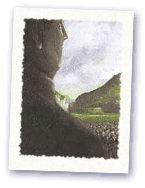 |

|
|||
|
Catholic Emancipation
The Catholic Association sought not only to remove what remained of the penal laws, but also to further Catholics' interests at a At the 1826 general election, pro-emancipation candidates won several seats. The most notable success was in County Waterford, where O'Connell's oratory roused the so-called "forty shilling freeholders" to vote against a member of the powerful Beresford family, who owned much of the county. In 1828, O'Connell himself won a by-election in County Clare. Unable to swear the oath of supremacy, O'Connell could not take his seat, but the victory persuaded the government led by the Duke of Wellington that emancipation must be granted. King George IV reluctantly yielded, and early in 1829 a Catholic Relief Bill received royal assent. Henceforth Catholics could sit in parliament without taking the oath of supremacy, and almost every office was open to them. However, the forty-shillings franchise was raised to ten pounds, so that many of O'Connell's supporters immediately lost their vote. O'Connell became an influential MP at Westminster, but failed in his second major campaign. In 1840 he formed an association to press for repeal of the Union, but lost authority after he yielded to a government ban on a proposed mass meeting at Clontarf in 1843. From the Appletree Press title: A Little History of Ireland, click here for more information or here to buy the book from Amazon. Also from Appletree: A Short History of Ireland, available from Amazon.com. Click here for more information. |
[ Back to Top ]
All Material © 1999-2005 Irelandseye.com and contributors

 time when many were suffering from economic depression and from unsympathetic landlords. When an annual membership fee of one guinea proved unpopular, O'Connell introduced a "Catholic rent" of one penny per month, and numbers soared as the money was collected by parish priests. Although opposed to violence, O'Connell never hesitated to speak aggressively in depicting Catholic grievances. The government responded, first by trying to prosecute him, then by banning the association, but O'Connell was undeterred.
time when many were suffering from economic depression and from unsympathetic landlords. When an annual membership fee of one guinea proved unpopular, O'Connell introduced a "Catholic rent" of one penny per month, and numbers soared as the money was collected by parish priests. Although opposed to violence, O'Connell never hesitated to speak aggressively in depicting Catholic grievances. The government responded, first by trying to prosecute him, then by banning the association, but O'Connell was undeterred.